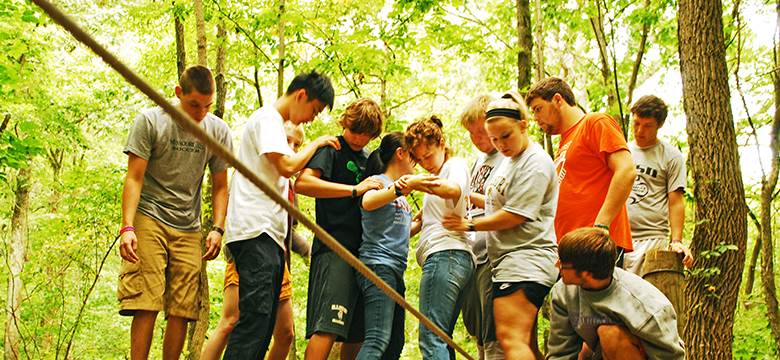 Stages of Group Development: FORMING, Storming, Norming, Performing
Stages of Group Development: FORMING, Storming, Norming, Performing
In examining the Stages of Group Development, one first has to establish what a group is. The word "group" possesses such a wide-range of meaning, it is important to define what we are talking about. The idea of a group can fall into two broad categories.
The first category is simply a crowd of people who come together, often briefly, for a shared experience. The second category is a number of people coming together for a period of time in order to accomplish a shared goal. This kind of group can be a sports organization, a committee, and co-workers in an office.
The natural tendency at this point is to say, "Oh, they're a team," but that is not entirely accurate. A group can also be kids in a classroom, an online discussion forum, and a church congregation. Whatever the nature of the group, there are certain qualities that define it as more than a crowd.
- Members of the group recognize themselves and others as part of the group.
- Members are gathered in order to help bring the group to a certain, defined conclusion (Worship together. Get an education. Win a game. Complete a project. Discuss a topic. Etc.).
- Members are gathered for an extended period of time. This can be for just a few hours, but is more often days, months, or even years.
- Members create an order of structure and (possible) hierarchy within the group. This order is not necessarily formally established, but may come into existence "organically" during the life of the group.
For the rest of this series, the word "group" will be used solely in the context of this second category. In this definition of a group, we can see the five stages of group development. We will only be discussing the first four stages. These stages were formally espoused in 1965 by Bruce Tuckman and have been widely cited in publications focusing on group development ever since.
The forming stage, could easily be called the "honeymoon" period. At this point in the group's development the members are just beginning to come together. Group members bring expectations and agendas that may or may not be realistic. There may be a distorted sense of enthusiasm or pessimism about what the group will accomplish or become. Generally, in the forming stage, there is wider latitude in acceptance and pardon. Unusual quirks in character are viewed as quaint or humorous, rather than irritating or flawed. Off-the-cuff remarks are more likely to be looked over, than taken with offense.
The time a group remains in the forming stage can vary greatly. Groups that meet irregularly with a social agenda may stay in the forming stage for a long period of time. Conversely, I was recently part of a committee that had much material to review in only 2 three-hour sessions. Forming lasted only a few minutes, before the storming stage took hold, allowing us to get to the focus of our committee's purpose.
It is also important to note that groups can Re-form, often many times, as the group's membership changes. In large groups, a shifting membership will have less impact than on smaller groups. However, the role a departing or incoming member plays is often a more determining factor than the size of the group.
The forming stage is a critical first part of group development, but it is not the only stage and a group cannot remain in this feel-good state indefinitely. At the same time, "official" group leaders should resist any urge to force the group past this stage. This will occur naturally as the group moves forward in its purpose and intent.